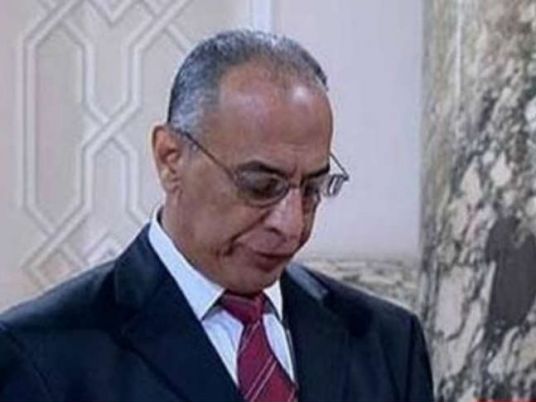
The remarks and consequent resignation of Justice Minister Mahfouz Saber have raised an important question whether Saber’s statement is a genuine reflection of a systematic discriminatory behavior followed by government institutions.
A few hours ahead of his resignation, he spoke to Al-Masry Al-Youm and criticized the public backlash, emphasizing what he said was reality, “Have you ever heard once of a son of garbage collector or a beggar become a judge?” he asked.
“With all my respect to the garbage collectors, I insist on what I’ve said, and whoever applies to be a judge should have grown up in a suitable social environment and have to be at least from the middle class,” Saber said.
When asked why he released his statement since the Supreme Judicial Council is in charge of hiring the new judges, he said “I answered conscientiously describing the status quo.”
Despite all condemnation of his clear conflicting opinion with the Egyptian Constitution and international law, Saber believes his statement does not violate the Constitution because equality should take place when practicing law, but he argued if two people applied for a job in the judiciary,and both have the same qualifications but one of them is a beggar’s son and the other is not, equality cannot take place there and it is a right of the appointing authority to apply the necessary conditions for hiring.
“I was reflecting reality, not making it up. That’s how things go in the army and the police service, too,” Saber said to the news website Dotmasr.
Lawyer and activist Haitham Mohamadein wrote on his Facebook account that whoever thinks the Minister’s statement is a slip of tongue or stupidity is “mistaken”.
Mohamadien explained that it is the logic of capitalism; the statement is released from a social level and expresses their way of thinking. This level also includes the military, police officers, judges, media professionals and senior officials.
“There is no hope for us the workers, farmers and this working class, there is no hope for us in this capitalist state and there is no alternative for us but the social revolution,” he said.
Echoing on Mohamadien, Gamal Eid, a human rights activist and lawyer, said that dismissing the Justice Minister without trial despite his insistence on what he said is similar to painting a ramshackle wall to hide its defaults without repairs.
While Khaled Ali, a lawyer and political activist, said that the statement is not just a personal opinion, but it is a living embodiment of the systematic behavior used by all state bodies to exclude all people coming from poor backgrounds from holding offices of authority.
The Egyptian movies raised this issue very well, most famous example being in the “Yakoubian Building” when the student was rejected in police because his father was a doorman.
Similar story
The story of the garbage collector reminds the social media activists with similar one took place in 2002. A young villager student named Abdelhamid Sheta left his town and studied economics at the Faculty of Economic and Political Science of Cairo University. He finished his master’s degree and wrote for many academic publications.
Sheta applied for trade attaché in 2002 and because his father was a farmer, he could not afford to take foreign language courses, so he learned them by himself.
Sheta successfully passed all the oral and written exams and ranked first of 42 other competitors, but the surprise happened when he went to find himself not one of the accepted, he rushed to the reasons list to find the reason was “socially improper”.
Shortly after, Sheta's picture was all of the front page of newspapers after he committed suicide by throwing himself into the Nile.




